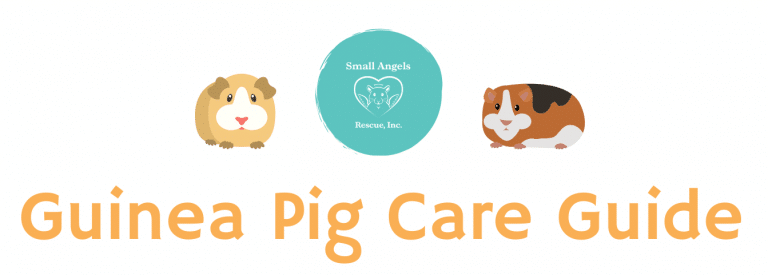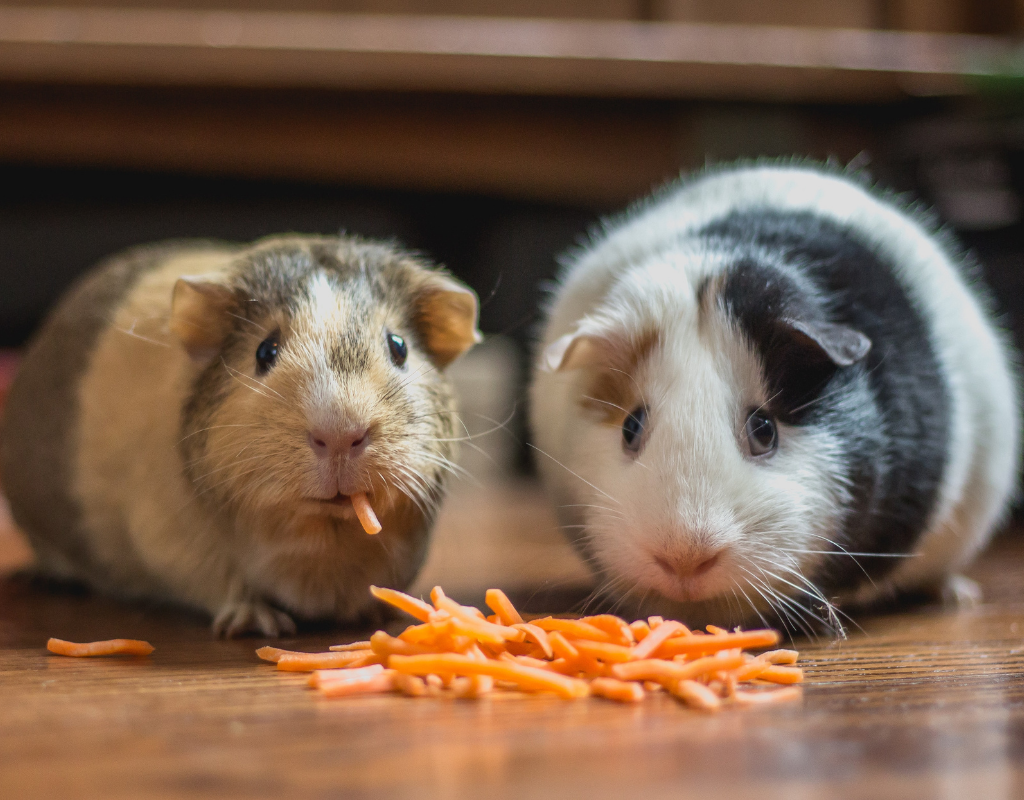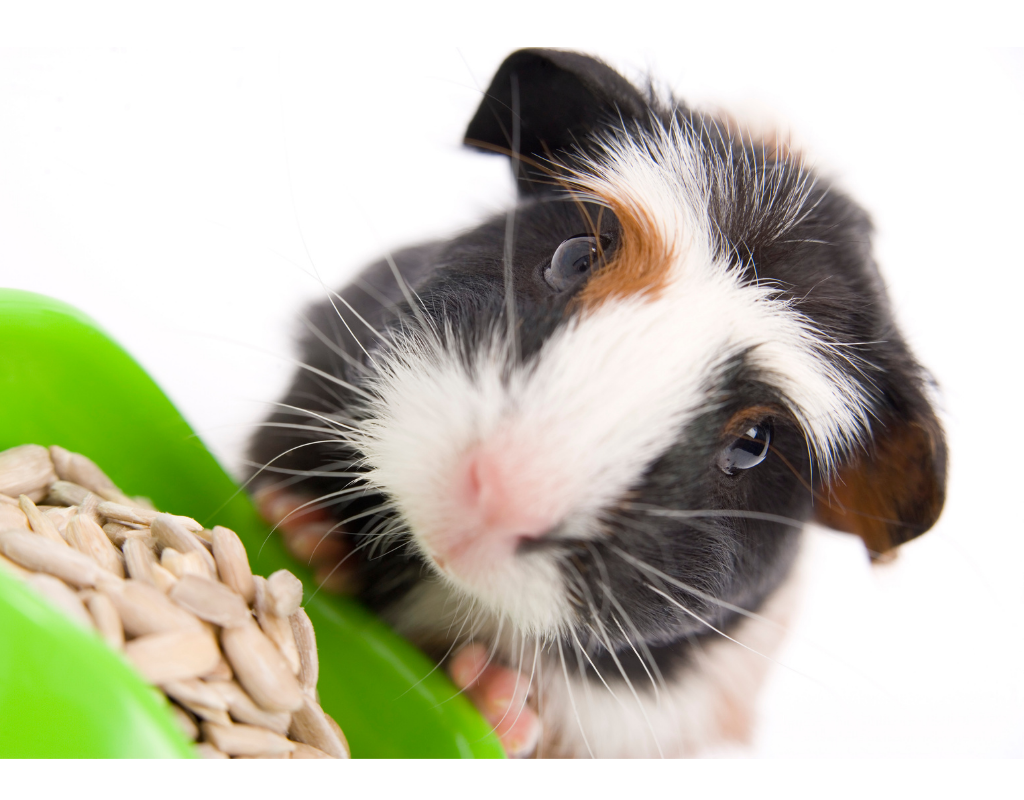Guinea Pigs

Guinea pigs make gentle and loveable pets; however, like any pet, they will be totally dependent on you for everything they need to be happy and healthy. We ask you to talk about this as a family and discuss the shared responsibility for their care over their lifetime of 5-8 years. This care guide is an overview of the basic needs and husbandry a guinea pig requires to be happy, healthy, and enriched over the course of their lifetime.
Habitat requirements
- We require a minimum of 8 square feet for a pair of guinea pigs.
- Preferred Habitat: Cubes and Coroplast cage of at least 2 cubes by 4 cubes (28” by 56” approximately) to which you can add boxes with doors/wooden houses and tunnels or ramps and platforms to create an interesting habitat that can be varied over time.
- No aquariums or plastic tubs as they have poor ventilation. No wire-floored cages as they are excruciating for a guinea pig’s sensitive feet.
- Check out https://guineadad.com/collections/guinea-pig-cages-and-habitat
Bedding
- Preferred: Fleece Bedding!
- Second Option: Carefresh Small Animal Bedding- Natural
Food
- Oxbow Guinea Pig Pellets
- Timothy hay or orchard grass hay is essential for a guinea pig’s good digestion, condition of their continuously growing teeth and amusement! Guinea pigs must have access to unlimited hay at all times.
- Vegetables: Give your guinea pigs small amounts of fresh vegetables (up to 1 cup daily) to provide additional Vitamin C and other nutrients. Popular choices include: Romaine lettuce, small pieces of carrot, tomato, green or red pepper, celery, cucumber.
Vitamin C Supplement
This is a necessary part of every guinea pig’s diet as they require approximately 50 mg of vitamin C daily, which often cannot be provided through diet alone. This can be satisfied by giving a liquid oral Vitamin C supplement or a high quality chewable supplement. Do not add the vitamin C to the water, as this promotes bacterial growth and is not a consistent way to dose your pig. Vitamin C also breaks down quickly when exposed to light. Vegetables high in Vitamin C, such as red, orange and green bell peppers, can be offered as an additional source of Vitamin C, but are not recommended as the sole source.
Playtime & Enrichment
- Guinea pigs can enjoy supervised playtimes outside in an exercise pen as long as: ~ a responsible adult stays with them the whole time and does not leave them unattended for any reason. ~ air temperature is around 70 degrees (guinea pigs cannot sweat and are susceptible to heat stroke which could kill them) and humidity is low ~ grass is dry and clean (unpolluted by fecal matter and chemical treatments). Be careful of birds of prey as they may try to attack your guinea pigs!
- Never put your guinea pig in an exercise ball or on an exercise wheel as these are extremely dangerous for guinea pigs!
Grooming
- Brushing – Guinea pigs especially long-haired ones, benefit from regular brushing with a soft brush. It will keep their coat healthy and reduce shedding.
- Nail trimming – This is essential and should be done monthly. We can show you how to do this using small animal nail trimmers and we recommend having Styptic powder available to stop any bleeding, should you accidentally cut the “quick.” Alternatively ask your vet or local pet store.
- Bathing – Long haired guinea pigs are more likely to need an occasional bath. Use a rabbit or kitten shampoo and use a shallow bowl of warm water. Take care to keep the water and soap out of the eyes and ears. Rinse thoroughly and towel dry; finish off with a hair drier on a warm setting.
Common Signs of Illness
Be observant and if you see any of the following signs, see your vet immediately:
- Refusal to eat or drink and /or weight loss
- Lethargy/reluctance to move
- Wheezing/displaying effort to breathe
- Hair loss/excessive scratching/bare patches/scabs
- Limping Loss of coordination
- Labored or noisy breathing
- Eye or nose discharge
- Rough or puffed-up coat
- Diarrhea
- Head tilt
- Suddenly develops Blood in urine (or crying/hunching when peeing)
*This is not a complete list and guinea pigs are often very good at covering up signs of illness. Weighing your guinea pig monthly can help catch early signs of illness.
Download the Guinea Pig Care Guide


